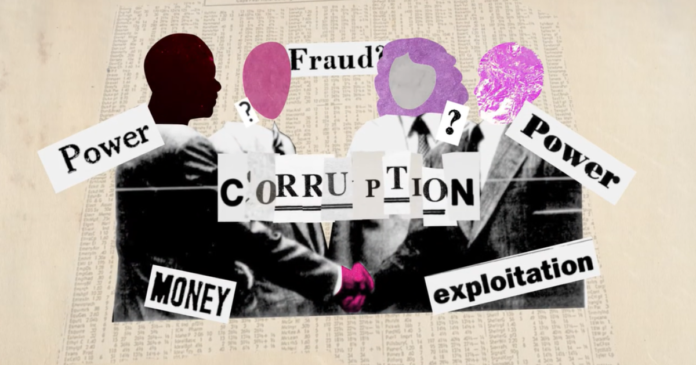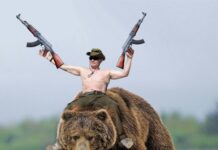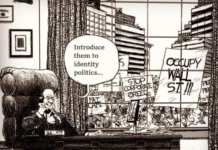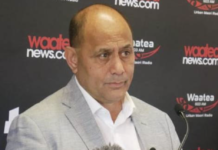I feel honoured to be giving this address in Dennis’s name and want to thank the organisers for the opportunity and privilege to do so. Dennis was always one of my heroes.
I didn’t meet Dennis Brutus until 2009 when I made my only trip to South Africa. It was such a pleasure to meet this elder statesman of anti-apartheid activism, with his dramatic shock of white hair, and undimmed passion for justice.
I was envious of his hair I have to say – for obvious reasons!
I’m going to talk about what I think we need to do when a liberation movement becomes a barrier to liberation. But to set the context I’m going to talk a little bit about 1976 because it’s a year where South Africa, New Zealand, colonialism, apartheid and Dennis Brutus intersected.
In fact I first became aware of Dennis’s name in 1976 at the time of the Montreal Olympics when he was working hard with others in the anti-apartheid struggle. Unfortunately at the time, this colonial country of New Zealand was standing with our “kith and kin” in white South Africa and a government minister had farewelled the All Blacks touring apartheid South Africa by saying the team went with “the goodwill and blessing” of the New Zealand government.
In fact to the fury of most of the world our All Blacks were playing the Springboks during the Soweto uprising – which had its 46th anniversary last week. Black school children were being murdered in the streets of South Africa in their hundreds (600 black children were killed between 16 June and the end of the year) while the All Blacks entertained the supporters of the white regime.
Earlier that same year our Prime Minister Rob Muldoon had castigated Abraham Ordia, the President of the Supreme Council for Sport in Africa and refused to meet him when Ordia came to New Zealand. Muldoon infamously said “Ordia can stew in his own juice”. After this insult Ordia left New Zealand early and the follow up played out in Montreal later in the year where African countries tried to have New Zealand excluded from the games.
When the motion to have New Zealand thrown out of the games was lost, 29 African and Caribbean countries boycotted the games because New Zealand was there.
There was an immediate sequel to this decision which is important to remember.
The glamour event of those games was to be the 1500 metres with Filbert Bayi from Tanzania facing John Walker from New Zealand. But Tanzania joined the boycott and a front-page photo in newspapers here showed Filbert Bayi packing his bags in his room at the Olympic village to head home. Bayi said he supported the decision of his country to boycott because the freedom of black South Africans was more important than his personal desire to winner an Olympic medal.
Needless to say, John Walker won the 1500m run.
The most important observation however is that Filbert Bayi’s sporting integrity is not so common today in elite professional sport dominated by contracts, money and greed rather than the selfless human solidarity expressed by the Tanzanian runner.
Over the past several decades I have been a strong critic of the African National Congress and its failure to transform the South African economy to one that works for people rather than big business monopolies.
In the 28 years since the ANC was elected to power in South Africa the rich have got richer and the poor have continued to struggle.
Two weeks ago I was reading about ANC leader and South African President Cyril Ramaphosa and allegations of corruption around his reputed $450 million in personal wealth and I immediately thought of a dinner I attended as a guest of an African state in the early 1980s. It was in part as acknowledgement for the work of the anti-apartheid movement during the Springbok tour protests of 1981 which had such an impact at home and, although we didn’t know it at the time, an important impact in South Africa.
As an aside here, because there are students attending. In 1981 Nelson Mandela was in prison on Robben Island and told us later that when the prisoners heard we had stopped the Hamilton game they rattled their cell doors right around the prison and made a hell of a racket. He said “it was like the sun came out”.
It was a lunch at a flash restaurant on a boat moored in the Thames River in London. I was taken aback with these diplomats ordering hugely expensive French wines and discussing how their children were getting on at flash private English boarding schools. Needless to say back in their home country education for the majority was rudimentary at best and life opportunities limited.
The “justification” was that this is what white politicians did this so why shouldn’t black politicians do the same? They saw it as racism to criticise their egregious behaviour.
I see and sense the same attitudes in the ANC leadership today.
However nothing sums up the ANC today better than the single word – Marikana. 34 striking mineworkers were massacred by South African police at Marikana. Ramaphosa was on the Lonmin mining company Board of Directors and instead of arguing for mediation and negotiation – he urged determined police action against the mineworkers. He sided with wealthy shareholders against the workers.
Marikana was the ANC’s Sharpeville massacre and Ramaphosa was a key perpetrator. Over 40 years he has morphed from mineworkers champion under apartheid in the 1980s to liberation leader, to collaborator, to sell-out, to apologist, to brutal oppressor.
The ANC’s transition from liberation movement to guardian of the rich is now complete. Ramaphosa himself has a reputed $450 million fortune. Let’s be honest hear – no-one ever gets half a billion by their own efforts – it can only be done either through legalised theft – or just plain theft – there is no other way.
So how did this transition from liberation movement to corrupt government take place.
I think two things are important here.
Firstly the “turning” of the ANC leadership away from its core principles and values. The Americans have an expression for how this is done – they call it “elite-pacting”. It refers to a strategy of targeting the top officials in a group you want to turn and lavishing them with luxury while working to convince them that free market economics is the only way forward.
So the leading figures in the ANC were targeted in this way with free trips to attend economics seminars in the US to be followed by all expenses paid holidays in flash resorts in Florida or the Caribbean where they were wined and dined. They became “pacted” with top US officials and quickly ended up slavishly following US dictates about the free-market economic direction the ANC must follow.
Secondly, most activists tell me they were looking the other way when South Africa’s fate was decided in the early 1990s – before the first vote was cast. Activists were campaigning to prevent various attempts by the white minority to screw the scrum in favour of whites by undermining the negotiations around the constitution.
Meanwhile a small group of ANC leaders around Thabo Mbecki were meeting regularly with the World Bank and International Monetary Fund and giving them assurances free-market capitalism would be the backbone of the South African economy under the ANC.
The problem for the people of South Africa was that they put their trust and faith in the ANC leadership – trust which was rapidly betrayed.
Black South Africans have gained civil and political rights but oppression based on race has morphed into oppression based on class – and not much else has changed.
Can the ANC be reformed to become a liberation movement once more? No.
Even if the majority of members wanted this to happen it couldn’t. It’s simply not possible to reform such an organisation from within. I can’t think of any precedents which would encourage such a belief.
I’ve met many members of the ANC who heavily criticise the organisation but end up saying “the ANC, warts and all, is my tribe, and always will be”.
Blind loyalty will always be a barrier to liberation.
What about the Economic Freedom fighters? Do they offer a way forward? No. They are also tied in with loyalty to personality and their political programme, from what I have seen, has been patchy, inconsistent and incoherent.
So an alternative movement needs to emerge where loyalty is entrusted to a political programme which transcends the vagaries of personality-led leadership.
I’m not usually one for quoting other people but here is a very helpful quote from Che Guevara.
“Liberators do not exist. It is the peoples who liberate themselves”
I interpret the message here to be that loyalty to each other and loyalty to a political programme is the way forward – not loyalty to leaders.
Where the movement becomes more important than its political programme or when loyalty to leadership takes over from the drive to enact political policies to benefit the majority – the seeds of political failure have been sown and fertilised.
Many of us, myself included, are veterans of political movements of one kind or other and we know how difficult it can be to develop and drive a movement based around a political programme.
So how does South Africa move forward? It would be arrogant of me to tell South Africans what they should be doing but South Africa has at least two examples from its political history and current practice worth looking at in this context.
The “Freedom Charter” movement of the 1950s was a successful attempt to develop loyalty to a set of political principles on which the liberation struggle could be built. The ANC was an outlawed organisation at the time and this was an attempt to build political opposition to apartheid with a set of political principles at the focus.
However, the Charter with its radical principles was gradually side lined as the ANC developed strength around the personality of Nelson Mandela – a great liberation leader but when elected President was unable to develop and press forward a political programme to significantly improve the lives of most black South Africans.
The other example is the basic organising work being done by Abahlali baseMjondolo – the shack dwellers movement. They are taking people from where they are – not from where they want them to be, or where they think they should be – but from where they are facing the struggle to meet their basic necessities in life.
The wrong way is to come up with a blueprint and tell people this is the way forward. The blueprint has to be developed by people on the ground themselves. It also has to be based around the actual situation people find themselves in – and the words must come from them with all their pathos and passion.
None of this is easy – if it was we would all be living in a socialist utopia by now.
There are no middle-class saviours for the poor and oppressed in a free-market capitalist society but all of us have talents and gifts to help amplify a political struggle and build a movement which transcends any one organisation and pushes ahead through linking up, sharing experiences, arguing, debating and discussing. In this way we build that wider movement and bring strength, integrity and people power to the fore.
In the meantime the ANC will slowly wither away, but like a whale carcass the decay will take a long time and it won’t be pretty.
And as it loses support and begins to collapse in on itself the leadership will resort to the tried and true tactics of race baiting – just as Mugabe did in Zimbabwe.
Through it all the movement needs to grow stronger, personalities taking second place to goals, principles and strategies. A liberation movement learns from its component organisations and brings forward ideas and develops programmes to deal with the big global issues like climate change, human rights abuses and the endless wars to promote free-market capitalism.
I hope these observations and suggestions will provide some food for thought. I know they exercised Dennis’s mind when I met him in 2009. The struggle was his life.
I want to finish with a short poem – the very first poem by Dennis in the book called “Poets to the People” edited by Barry Feinberg in 1974. It’s a poem which had a big influence on me for the power of its words to convey political messages through righteous anger.
Ironically the book this poem comes from is dedicated “To South Africa’s political prisoners and to the African National Congress and its allies”. Dennis would have had plenty to say about that!
For a dead African
(John Nangoza Jebe – shot by police in the Good Friday procession in Port Elizabeth 1956)
We have no heroes and no wars
Only victims of a sickly state
Succumbing to the variegated sores
That flower under lashing rains of hate
We have no battles and no fights
For history to record with trite remark
Only captives killed on eyeless nights
And accidentally dyings in the dark
Yet when the roll of those who died
To free our land is called, without surprise
these nameless unarmed ones will stand beside
the warriors who secured the final prize
Thank you for listening, thank you for having me.
Kia ora koutou.






Well said John. My father (a rugby-playing farmer) was part of that small group who went onto the field at Rugby Park 1981 and got the game called off.
He would be disgusted to see the degradation of equal rights in post-Mandela South Africa, where ‘black on black’ oppression has replaced ‘white on black’ oppression. I disagree with your theory however that pins the blame on capitalism. It is cronyism that is the problem, a ‘disease’ that is just as (and often more so) acute in socialist economies and societies as in capitalist ones. It is often caused by weak or politically undermined legal systems, so that some are able to be ‘above the law’ because of race, heritage or status. A lesson here for NZ as we debate co-governance?
So…. true capitalism has never been tried?
The ANC had the great misfortune to assume political power at the height of neo liberalism–Thatcher & Reagan and Chile had set the agenda–plus looking back at the Freedom Charter the ANC was substantially a nationalist rather than the needed anti capitalist movement.
It was pretty common knowledge at the time that international corporates assisted the ANC to power on the basis that capitalist enterprises like auto assembly and mining etc. would continue unmolested post Apartheid.
The rapid onset of corruption among the managerial and political class among the ANC did surprise many with its rapidity though.
The South African working class and people of course hold the answer as in all countries!
Thank you, thank you, thank you.
I so needed to read this today.
I’ve seen so many movements betray their principles and the causes they purported to serve. And the cause and service are key. They are always and must be the reason. Betrayal from those who are pretending to help, and often to themselves, is at least as immoral as the original oppression.
There is a reason Dante placed betrayers in the first circle of hell.
there’s only one -ism responsible for South Africa’s demise: tribalism. Same with Zimbabwe and with every other failed African state. They practise their own apartheid, and only the most naive who know nothing about Africa would miss this.
https://www.latimes.com/archives/la-xpm-1986-03-23-mn-5583-story.html
Yes Gaby correct but many people avoid that ism.
I suggest that there is one important ‘p’ missing when defining important loyalties, and these must go together – first and overarching is principles and people, then political programme with regular monitoring and avoid another ‘p’ which is pandering. Learn how to work with but not be subsumed within others, who find their own reflectionsmore compelling than the wished for visionary future.
Yes Greywarbler principles are easily forgotten in the world of politics.
Hypocrisy has no bounds as clearly explained by John Minto’s piece above.
Bob the First Our lot are displaying their hypocrisy by appointing a Parliamentary Standards Commissioner to protect them from each other while abolishing the Children’s Commissioner who protects everybody’s kids.
AS IT FAILED TO APPEAR….I’LL TRY AGAIN
COMPANION PIECE ON HAMAS PLEASE, JOHN.
Why, why would he need to do this.
Minto does not support Hamas at all. There has been no election to replace them, they have about 10% support and frankly Israel wants to keep them there we all know that, it suits them.
They are the ones that handed the bullet over to Israel that killed Shireen, enough said. Interesting that there are lots of bullets that hit the tree that Shireen was by – aaaaah but she wasn’t a marked woman, yeah riight!
When the times comes and it will for one state in the area with REAL DEMOCRACY, then I am sure he will write something.
Your summation of what is happening in my country is spot on John. 1994 was a setback and our struggle continues, building the nation from below based on integrity and a principled programme towards a more humane society, which can only be a Socialist one.